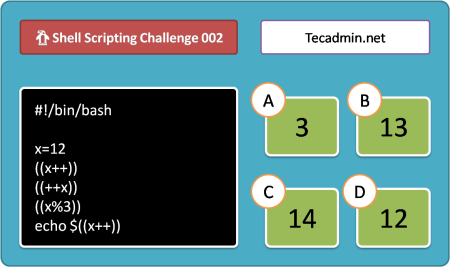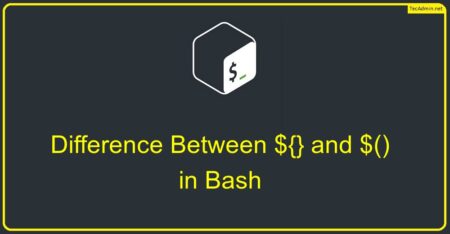In programming languages, variables are named containers that store values. They are the backbone of any program, allowing us to create dynamic scripts. In Bash scripting, we have two main types of variables – Global and Local. This article will offer a deep dive into these types, showing you how to declare, use, and manipulate them.
Introduction to Bash Variables
In Bash (Bourne Again SHell), a shell for the GNU operating system, variables are utilized to store data. Their names are case-sensitive and traditionally are capitalized, although lower case names are also allowed.
To assign a value to a variable, we use the equals sign (=) with no spaces around it. For instance:
site_name="tecadmin.net"
This assigns the string “tecadmin.net” to the variable `site_name`.
Once a variable is assigned, we can access its value using a dollar sign ($). The following command will print the variable `site_name` to the console:
Global Variables
By default, every variable we create in Bash is global. This means it's accessible anywhere in the script, regardless of scope. They can be used in any function, loop, or conditional statement within the script.
#!/bin/bash
global_var="I am a global variable"
function test {
echo $global_var
}
test # outputs: I am a global variable
In the script above, `global_var` is a global variable, and it's accessible within the function test.
Local Variables
Unlike global variables, local variables are confined to the block of code or function in which they are declared. Outside of that block, the variable is not recognized.
We create a local variable in Bash by using the `local` keyword.
Here's an example:
#!/bin/bash
function test {
local local_var="I am a local variable"
echo $local_var
}
test # outputs: I am a local variable
echo $local_var # outputs nothing
In this script, `local_var` is defined within the function test. When we try to echo $local_var outside of the function, it returns nothing since it's not recognized outside of its local scope.
Interaction between Local and Global Variables
Let's understand what happens when we use a local variable with the same name as a global variable.
#!/bin/bash
my_var="I am a global variable"
function test {
local my_var="I am a local variable"
echo $my_var
}
test # outputs: I am a local variable
echo $my_var# outputs: I am a global variable
In this script, the function test declares a local variable `my_var` that shares the same name as a global variable. Within the function, the local variable takes precedence over the global one, but outside the function, the global variable maintains its value. This concept is called 'variable shadowing'.
Conclusion
Understanding variable scopes and how to work with local and global variables is fundamental to scripting in Bash. It allows us to control where variables can be accessed and modified, providing a layer of security to our scripts. Global variables are accessible anywhere in the script, whereas local variables can only be used in the block of code or function where they're declared. Always remember to use the most restrictive scope possible for your variables to avoid unexpected behavior in your scripts.




1 Comment
What does the DECLARE -g do? Seem relevant here.
Why are your variable names in all upper case?